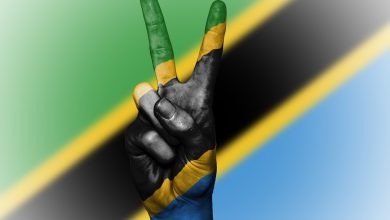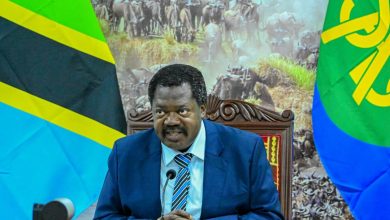How Nyerere paved way for peaceful power transitions

DAR ES SALAAM: THE peace and stability that define Tanzania today are a direct result of the vision and philosophy of its founding father, the late Mwalimu Julius Kambarage Nyerere, who led the nation from independence in 1961 until 1985.
During his 23-year presidency, Mwalimu Nyerere introduced sweeping reforms aimed at securing long-term national prosperity, unity and self-reliance.
His leadership laid the foundation for a democratic culture that remains central to Tanzania’s identity.
One of the most defining moments of Nyerere’s legacy was his voluntary decision to step down from power in 1985, a rare and principled move at a time when many African nations were grappling with political instability, often caused by leaders refusing to relinquish power.
His peaceful transfer of leadership sets a powerful precedent and established a tradition of smooth political transitions that continues to this day.
Mwalimu Nyerere was succeeded by Ali Hassan Mwinyi, who led the country through its second phase of leadership from 1985 to 1995. During his tenure, Tanzania transitioned into a multi-party democracy, culminating in the first multiparty elections in 1995, a milestone that marked a new chapter in the nation’s democratic journey.
The election brought Benjamin Mkapa of Chama Cha Mapinduzi (CCM) to power, ushering in the third phase of government. In line with constitutional term limits, President Mkapa completed his two terms and peacefully handed over leadership to Dr Jakaya Kikwete in 2005.
Following this democratic tradition, Kikwete completed his two terms in 2015 and passed the baton to Dr John Magufuli, who won the general election that year. Though Magufuli was expected to serve until 2025, his untimely death in March 2021 led to the ascension of then-Vice President Samia Suluhu Hassan, the first woman to hold the presidency in Tanzania.
Continuing the legacy of peaceful leadership, President Samia has steered the country with her “4Rs” philosophy: Reconciliation, Resilience, Reform and Rebuild a framework focused on national unity, governance reforms and inclusive development.
Speaking to the ‘Daily News,’ Political analysts and commentators stressed on the importance of preserving the legacy left by Mwalimu Nyerere.
A Lecturer and political analyst at the University of Dodoma (UDOM), Dr Paul Loisulie expressed optimism about Tanzania’s ability to uphold Nyerere’s legacy.
He described Mwalimu Nyerere as a selfless leader devoted to serving the people and transforming the nation, a leader whose values continue to serve as a model not just for Tanzania, but for the entire African continent.
“This was a true demonstration of democracy and the creation of an ideal society where the rule of law is upheld, allowing capable leaders to take the reins,” said Dr Paul Loisulie.
He added that peaceful transitions of power not only reflect respect for leadership term limits but also inspire hope for future leadership, especially when current administrations may fall short of expectations.
Dr Loisulie encouraged Tanzanians to continue embracing peaceful power transitions and to actively participate in development efforts for the progress of the nation.
In support of the sentiments, a lawyer based in the Ruvuma Region, Mr Alex Nyoni explained the importance of protecting the foundations laid by Mwalimu Julius Nyerere saying the peaceful transfers of leadership are a direct result of Mwalimu Nyerere’s efforts as the founding president of Tanzania.
“He was indeed a true father of the nation; this country is standing on strong foundation that he built decades ago” he said.
Mr Nyoni added that Tanzania’s reputation as a peaceful and democratic country in Africa is largely due to Nyerere’s vision, which helped establish a culture of holding general elections every five years, with smooth transitions of power.
“Mwalimu Nyerere left us a strong legacy in expanding the democratic space. Today, Tanzania stands as a positive example among other African nations,” he added.
His views were echoed by a human rights activist based in Morogoro, Ms Emilia Zabron who agreed that without Mwalimu Nyerere’s commitment to democracy, Tanzania’s current political stability might not have been possible.
She commended Mwalimu Nyerere’s role in advocating for the reintroduction of multiparty democracy in the country, calling him a tireless champion of political freedom and civic participation.
Veteran historian and senior citizen Mr Mohamed Said also reflected on Mwalimu Nyerere’s legacy, recalling his principled and strategic approach to governance.
He recounted how Mwalimu Nyerere, even under pressure and opposition from fellow TANU members, navigated the tripartite voting system imposed by the colonial government, which favoured European and Asian representation to ensure African voices were heard.
“Although boycotting the vote would have disqualified their participation, Mwalimu Nyerere led the decision to remain in the process, prioritising African representation and interests,” Mr Said said.
During her commemorative speech, President Samia Suluhu Hassan applauded Mwalimu Nyerere as a true Africanist who dedicated his life to building national peace, unity and harmony.
“Throughout his lifetime, Mwalimu Nyerere taught Tanzanians the value of patriotism and the importance of fostering unity and harmony as foundations for sustainable development,” President Samia said.
She reaffirmed that Mwalimu Nyerere’s vision and philosophy continue to guide all phases of Tanzania’s leadership, with successive governments building on the principles he set during the country’s first phase of administration.
“One of the most enduring legacies Mwalimu Nyerere left behind was the promotion of equality by treating all citizens with fairness, regardless of their colour, tribe or religious beliefs,” she added.





